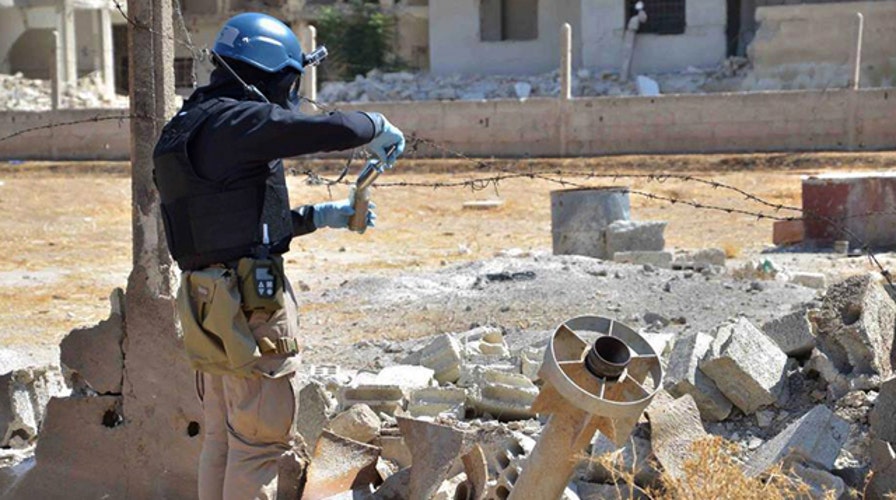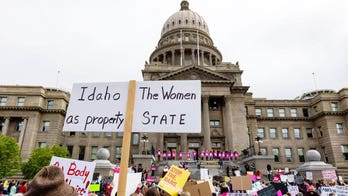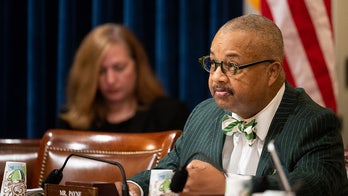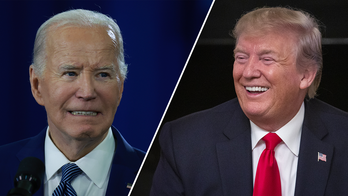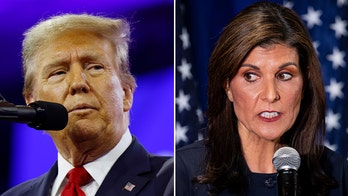Why the US shouldn’t get involved in Syria
Former USS Cole Commander Kirk S Lippold reacts to the risks the US military would have intervening in the conflict
Facing the loss of a major ally for a potential military strike on Syria, President Obama has an opening, perhaps, to reconsider his "red line" options.
After warning Syria a year ago that using chemical weapons would constitute crossing that line, the president's first option -- given evidence that chemical weapons were used in a deadly attack against civilians -- was an immediate cruise missile strike. He's positioned warships offshore in preparation.
Yet Obama watched Thursday as British lawmakers rose up against Prime Minister David Cameron and rejected participation in any military action, putting his red line doctrine to the test. Obama now has to wait for France, or some other ally, to step up, or go it alone.
But his administration already has outlined to U.S. lawmakers a range of options in Syria that don't include lobbing cruise missiles at Assad's airfields.
And while lawmakers are accusing Obama of trying to save face with a quick missile strike, Obama never overtly threatened Assad with missiles when he spoke of the "red line" last August. He merely said that crossing it "would change my equation."
To that point, here are what appear to be Obama's other "red line" options:
Beefing up the Opposition
The administration has already said, in response to prior chemical weapons allegations, that it would arm the opposition -- though that is in very early stages. Plus it is giving humanitarian aid to Syria's neighbors and non-lethal aid to the opposition.
But as Gen. Martin Dempsey, chairman of the Joint Chiefs of Staff, acknowledged in a letter to Rep. Eliot Engel, D-N.Y., on Aug. 19, the U.S. can help "on a far more significant scale."
Dempsey, in the Aug. 19 letter and a July 19 letter to Senate Armed Services Committee Chairman Carl Levin, D-Mich., floated the option of ramping up U.S. support for select parts of the opposition.
"We could, if asked to do so, significantly increase our effort to develop a moderate opposition," he wrote. This includes financial aid, as well as possibly thousands of U.S. troops to help with training and tactical planning.
The idea would be to prop up a moderate slice of the opposition, in the hope they would outpower the Islamists and ultimately Assad.
Buffer Zones
Dempsey described this option, which would also require U.S. military might, in his July letter.
The proposal would include establishing safe zones for the opposition to organize and train, "most likely across the borders with Turkey or Jordan."
The U.S., though, would have to defend the zones by creating a "limited no-fly zone," and likely deploying thousands of troops.
More Sanctions
Syria, as a State Department-designated sponsor of terrorism, is already subject to a litany of sanctions. But the U.S., along with the United Nations, could go even further. In a column for The Guardian, Centre for Global Development fellow Kimberly Ann Elliott floated a novel idea that could help put the squeeze on Syria even more.
Noting that the Assad regime is still "kept afloat" with arms from Russia and aid from Iran, she suggested new sanctions to "deter international lenders or investors from doing business." The idea would be to declare the regime illegitimate and allow for commercial contracts to be nullified if a "legitimate successor government" comes into power.
In other words, let the global community know that if they do business with the Assad regime, they stand to lose a lot of money should that regime be ousted from power.
This, though, runs the risk of making Assad's allies even more invested in his preservation.
Doug Bandow, a senior fellow at the Cato Institute, said another option would be for the U.S. to strike a deal with the Russians to put added pressure on their ally Syria. Though the Russians have resisted U.S. calls for intervention, Bandow said the Russians might agree to sanction Syria or tighten the flow of arms on their end.
"That to me would be the most obvious diplomatic alternative," he said. "Whether or not it would be effective would be a completely different question."
Put it to Congress
In a sense, British Prime Minister David Cameron was let off the hook when the House of Commons on Thursday rejected a measure that would have given preliminary approval for military intervention in Syria. Cameron claimed he got the message, and indicated his government would not proceed.
In Washington, members of Congress are now demanding that Obama give them the same opportunity to put the matter to a vote.
"The Constitution is very explicit on this. When you go to war, Congress must authorize this," Sen. Rand Paul, R-Ky., told Fox News on Friday.
It's an option for Obama to consider. If Congress were to vote it down, Obama could at least demonstrate that he tried to pursue a military response in Syria, if not for Congress.
And if Congress were to approve it, he'd have a bit more of a mandate.
Part of the concern, though, is that the military would be proceeding with intervention in Syria in the age of steep budget cuts.
Sen. James Inhofe, R-Okla., warned Friday that the military does not have the assets to proceed right now. Each Tomahawk fired costs about $1.5 million. This can add up; during the Libya operation, more than 200 were fired.
Fox News' Jennifer Griffin contributed to this report.
